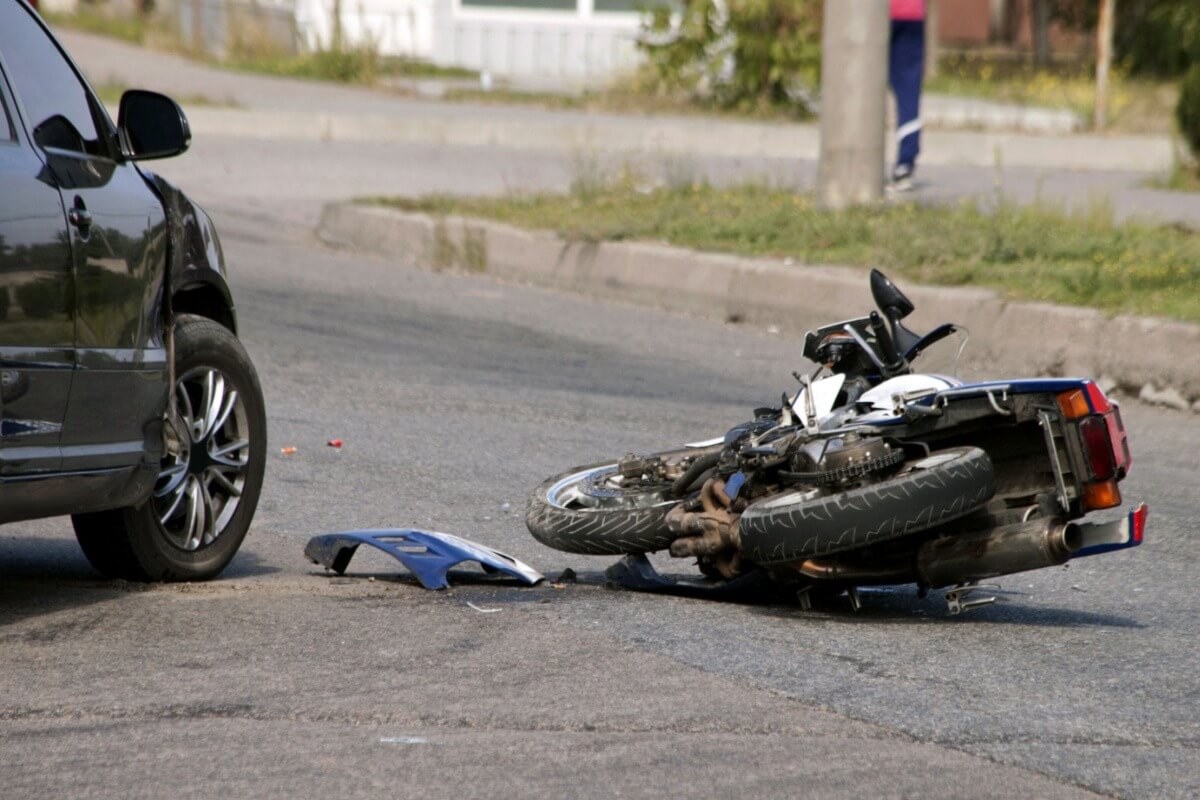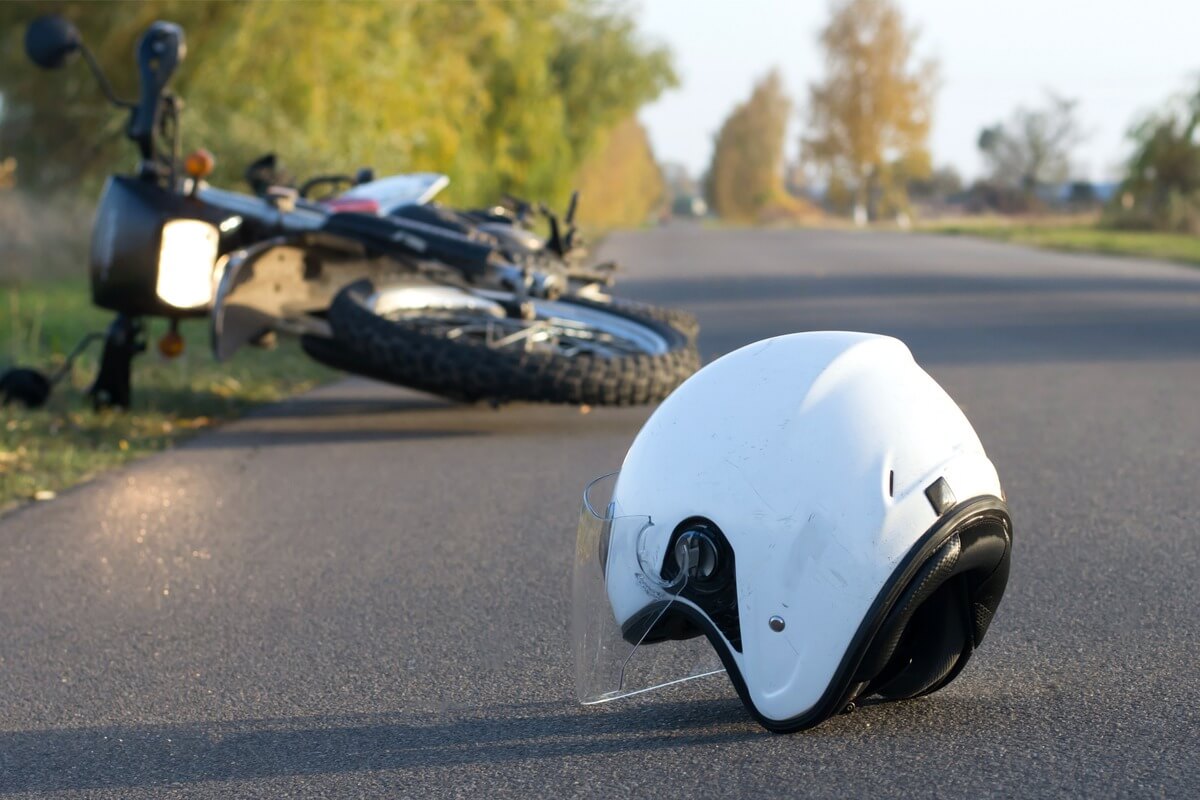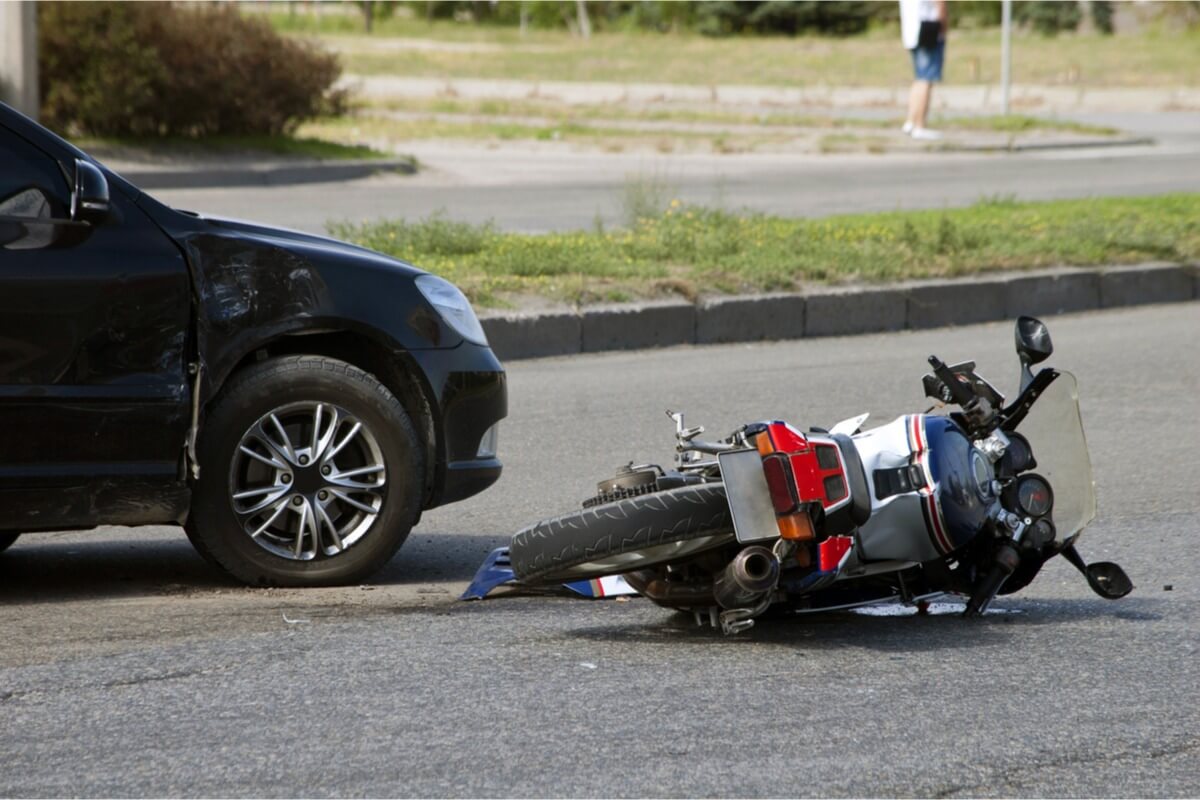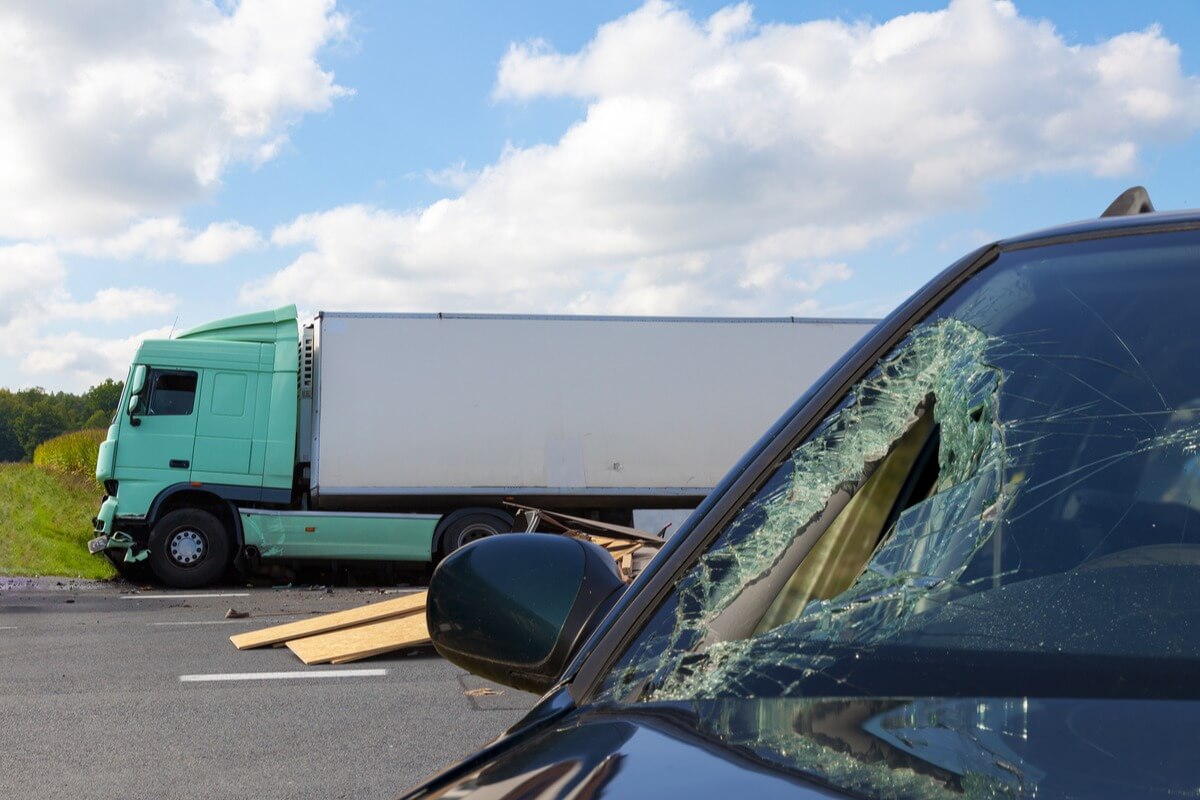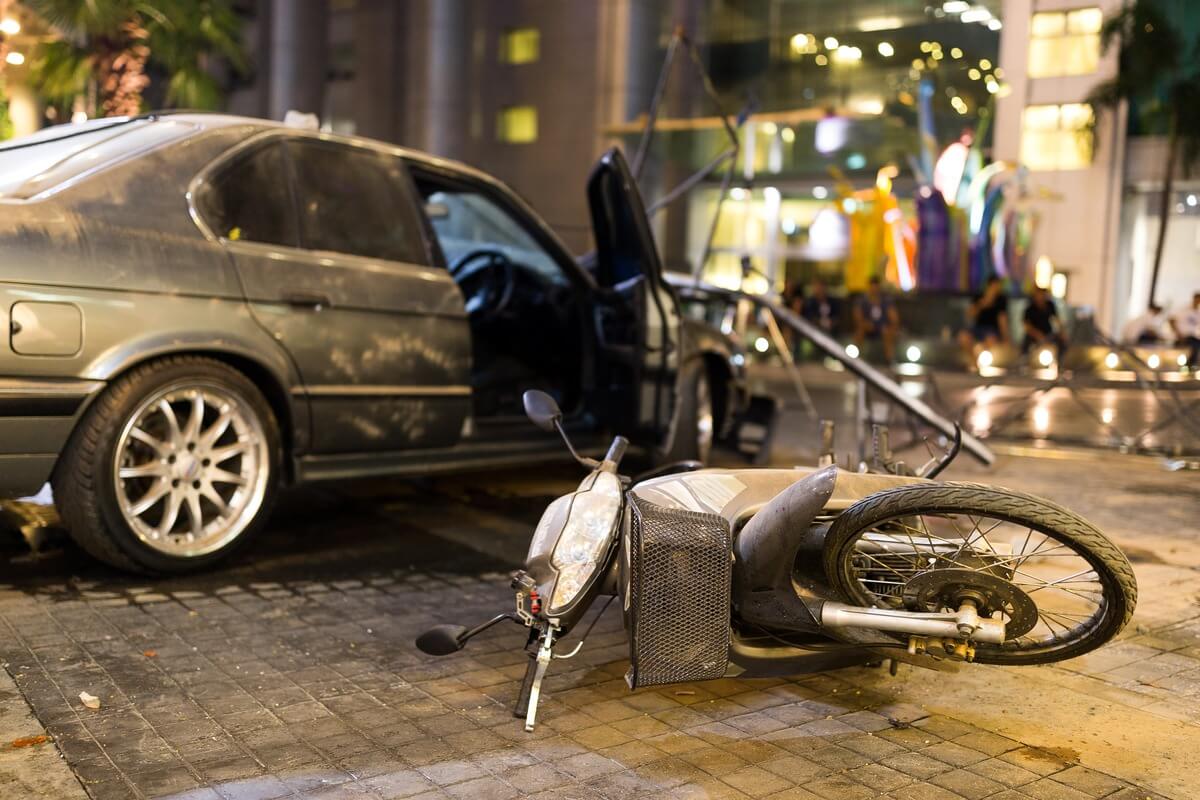
You hop on your motorcycle for a mid-morning ride. Your helmet is adjusted, your favorite song is blaring, and the wind is in your face. Life is good. Suddenly, you notice traffic has slowed to a stop in front of you. No worries! You’re on a motorcycle. You can simply go in between both lanes of traffic, right? As you maneuver through the crowd, a car tries to pull into a gap in the other lane and causes a collision. Who is at fault? This scenario happens nearly every day. Here’s the interesting part: the answer depends on your state and your local laws.
If you were involved in a motorcycle accident, and you’re wondering if you can file an accident claim after a collision involving lane splitting, you’re not alone. Here’s everything you need to know about lane splitting laws and motorcycle accidents in the state of Louisiana.
What is Lane Splitting?
Lane splitting (also called “stripe riding”) is the process of riding a motorcycle between two lanes of slow-moving or stopped vehicles. Since vehicles in each lane are separated by white lines, stopped traffic often leaves a gap big enough for a motorcycle to squeeze between. Often, riders use lane splitting to bypass congestion or avoid risky sudden stops.
Currently, research is divided on the safety of lane splitting. Back in 2004, the Association of European Motorcycle Manufacturers (AEMM) conducted a large-scale study of motorcycle accidents across five European countries. Part of the study attempted to uncover discrepancies between injury and collision data between countries that allowed and forbid lane splitting. The results were inconclusive. While researchers have argued for and against lane splitting in a number of research papers and studies, no concrete conclusion has been reached.
Furthermore, it’s incredibly difficult to prove safety in the case of lane splitting. Since safety is always a factor in accident cases, lane splitting (whether legal or not) often requires a case-by-case analysis.
Note: Lane splitting is different from lane filtering. When riders lane filter, they use the shoulder of the road to bypass traffic. This practice is generally legal (there are a few states where it is currently illegal), but it shares similar safety burdens in accident cases.
Why Do Motorcycle Riders Lane Split?
Often, accident cases involve a layer of situational safety. In other words, why did your lane split in the first place? In general, motorcycle riders lane split for two reasons:
- To reach their destination faster
- To avoid potential collisions
For example, if traffic comes to a sudden stop, lane splitting may prevent you from being rear-ended by another driver. In this case, you could argue that lane splitting was the safest thing to do in that specific situation. It’s important to have these types of conversations with your personal injury attorney. They will help you decide the best course of action for your case.
However, it’s important to remember, many motorcycle riders lane split using split-second decision-making based on the specific circumstances of traffic. Yet, some use it to rush through clogged traffic. Both of these may play out differently in a courtroom. And part of that depends on the legality of lane splitting in your area.
Is Lane Splitting Legal in Louisiana?
No. Lane splitting is illegal in New Orleans, as well as all of Louisiana. In fact, lane splitting is illegal in every state except for California. Technically, there are a few states where lane splitting is neither legal or illegal (leaving some ambiguity about its use in accident claims), but Louisiana has made it explicitly illegal. Louisiana’s state motor vehicle laws section RS 32:191.1 states, “No person shall operate a motorcycle between lanes of traffic or between adjacent lines or rows of vehicles.” In addition, motorcycle drivers must wear the proper protective equipment, keep both hands on the handlebars, and avoid transporting children under the age of 5.
In other words, do not lane split in Louisiana — especially if you’re simply looking to arrive at your destination quicker. It could land you in legal trouble and be used against you by claims adjusters and prosecutors. But what if you split lanes to avoid a catastrophic wreck?
Understanding the Nuances of Lane Splitting
As with anything, no two motorcycle accident cases are the same. Sometimes, riders split lanes to avoid collisions. And, in the process, they get into another collision or get caught off-guard by another vehicle acting manically. In these cases, you should discuss your case with your personal injury attorney. They can help you understand the nuances of your case, and discuss the right strategies for your unique situation.
Remember, you can file an accident claim even if you were lane splitting. However, it could impact the validity of your case. So, it’s important to connect with a specialized attorney that thoroughly understands Louisiana’s accident and motorcycle laws.
How Do Insurance Companies Prove Lane Splitting?
Let’s say you decide to file a claim after an accident involving lane splitting. How can insurance companies or lawyers possibly prove you were practicing lane splitting?
Insurance adjusters and layers will attempt to use any possible evidence against you in a trial. In return, you must be ready to prevent evidence to prove you acted reasonably and safely. Of course, this evidence comes in many shapes and sizes (e.g., dashcam footage, police reports, photos, cell phone records, testimonies, etc.) The important part is using the right evidence at the right time. Make no mistake, lawyers and claim adjusters will pour through evidence and use anything and everything at their disposal during the trial. So, you need to be ready.
You Need A Reputable Personal Injury Lawyer In Your Corner
Navigating the complexities of motorcycle accidents in Louisiana can be daunting, especially when you’re unaware of the intricacies involved. For instance, understanding the specifics of motorcycle accidents in Louisiana or gathering comprehensive motorcycle accident information can be invaluable.
Moreover, knowing your rights when it comes to motorcycle helmet compensation or the broader spectrum of catastrophic injuries can make a significant difference in your case. Furthermore, if you believe you’re a part of a larger issue, exploring our class action category might provide insights into collective legal actions.
As a motorcycle rider, being involved in an accident is terrifying. You may be dealing with injuries, property damage, and mental issues. To make things worse, prosecutors, attorneys, and claims adjusters will use anything they can to ensure that you’re on the losing end of your car accident case. You need backup. At AKD, we fight diligently to ensure our clients get the compensation they deserve. Contact us at 504-200-0000 or online for a free consultation.
Categories
- Bicycle Accidents
- Car Accident
- Case results
- Class Action
- Community Aid
- COVID-19
- Fun
- General
- Hard Rock Lawsuits
- Holiday
- Insurance Claims
- Legal Advice
- Mardi Gras Accident Attorney
- Mass Tort
- Medical
- Motorcycle Accident
- Personal Injury
- Practices
- Premise Liability
- Recent News
- Safety
- Truck Accidents
- Uncategorized
- Weather
- Work-Related Accident

In 2003, after being dissatisfied with the quality of legal care for victims of car accidents, Roderick ‘Rico’ Alvendia sought to establish a new firm focused on providing high-quality legal services to aid injured victims and their families. J. Bart Kelly, sharing Rico’s passion for upholding justice, joined the firm later that year, and established a partnership.



